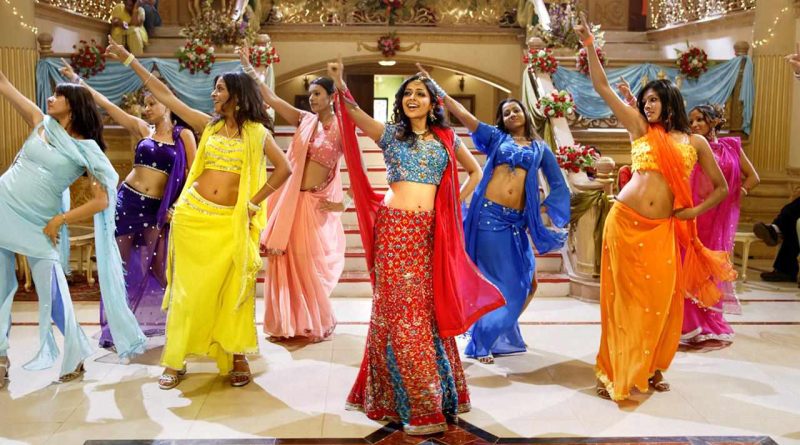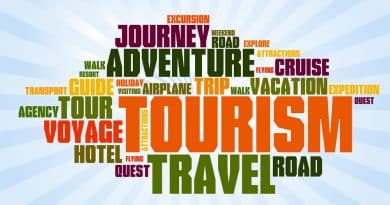Bollywood Tourism
It’s an emerging global battle between Tourism Boards to rope into the Bollywood saga. Bollywood is the international and the most popular definition of the Hindi language movie sector in India, which is perhaps one of the world’s largest too. Selling a billion more tickets annually than Hollywood, Bollywood showcases themes from all over the world.
The Hindi film industry has now led fans of this popular cine culture to experience fresher climes in the Finnish Lapland of Rovaniemi and Poland (Fanaa), Victoria in Australia (Salaam Namaste), Korea (Gangster), Brazil (Dhoom II), Kandahar and Kabul (Kabul Express), Ras Al Khaimah (Deewane Hue Pagal, 36 China Town) and Malaysia (Don II).
The trend which began with “Dilwale Dulhaniya Le Jayenge in the 90’s lapping up the UK and Swiss borders has now transcended its’ boundaries across the Atlantic to New York with Kabhie Alvida Na Kehna and Kaal Ho Na Ho.
As Dubai along with Ras Al Khaimah in the UAE, Hong Kong, and Singapore get added as new destinations to the Mumbai film repertoire, Tourism Boards the world over along with Mumbai and India are clamoring for a slice of the Indian film industry which is expected to cross a turnover of Rs140 billion, as per a KPMG consultancy report. Kashmir and Kerala have given way to world destinations as more producers go westwards to film their movie musicals.
The Indian Tourism Ministry and the Maharashtra government too have pulled up their socks and are looking to create private or public partnerships to promote Bollywood Tourism, especially in the United Kingdom which has already worked out a counter-tourism strategy to lure Hindi film fans.
The British move is to allow Hindi film buffs to walk the paths of the now famous British locales of London, Scotland, and Yorkshire and relive their favorite Bollywood filmy moments.
With India’s official carrier proposing to add new flights to the London and Europe sector to rope in the large Indian expatriate community, Britain’s Tourism department is already pitching high on Bollywood through the sale and distribution of an innovative “Bollywood Map of Britain”, with dozens of dots that identify now-seen scenes from Hindi blockbusters- locations such as the Blenheim Palace, Waddesdon Manor- used extensively for the shots of Kabhie Khushi Kabhie Gham (K3G) and many more such spots made famous in Bollywood movies.
In the recent past, Hong Kong recorded a 24.7 percent growth in visitors from India and this has led the tourism board to learn certain movie-making linkages between Mumbai and Hong Kong which has plans to develop destination and tour packages revolving around Bollywood and also market the extensive production centers in Hong Kong to Indian movie makers. The Singapore Tourism Board 2006 launched a “KKrissh” tour package.
The Swiss success of Bollywood has now trickled onto Finland and the Finnish Tourism Board (FTB) had in the recent past organized programs for Bollywood’s dream merchants to familiarize themselves with Finland. The FTB proposes to give location subsidies. Other sops and easy permissions to set up cameras and shots in Finland are being studied.
The idea of the FTB is to sell the midnight sun and Northern Lights of the archipelago and bring it under Bollywood’s arch lights. With a direct flight o Helsinki from India, it’s only a wait-and-watch scene with Bollywood fans adding Santa Land to their holiday destination!
With film festivals and awards shows the rage of the times, more and more countries are offering their destination points to set shop for Bollywood’s pre and post-productions, also setting aside budgets for awards and glitterati shows. The Malaysian Government had set aside about $US 2.7 million to host the 2006 Global Indian Film Awards (GIFA) thus pushing up sales for Malaysia as a prime Bollywood destination, already made famous in a host of Hindi films.
Only recently some private tour operators in Mumbai have understood the need to tap the “Bollywood” bug as part of their Mumbai ‘Darshan’ packages. Such operators charge around US $100 or rupees 3900 per head for a day’s guided studio tour with or without lunch packages. The experience gets tourists closer to understanding the nuances and technicalities of running one of India’s largest and most glamorous industries.
The trip includes either a film studio or a television soap shoot on location at one of the studios. Tourists get to watch actors and technicians create scenes most fans might already be aware of in the real set, setting off a de ja vu appeal.
Sometimes, a post-production studio experience is thrown in where tourists learn and see in-situ dubbing, sound-editing, and some other special effects that are added to movies. As most live studios in Mumbai are not open to viewing for the general public, it is left to the individual tour operators to work out their contracts with the studios they have a nexus with. Filmistan Studio is one of the more popular studios open to the public.
However, to thrive on the real Indian movie experience, Tollywood or the Southern Hyderabad-based film industry is the place to be. With Mumbai belting out Hindi movies, Telegu, the second most widely spoken language in South India adds to the splendor and glamour of Tollywood.
Producing over 150 feature films a year in and around the new emerging IT hub in Hyderabad, it is worth a visit to Ramoji City -one of the largest filmmaking complexes in the world. With more than 1,600 acres of ply streetscapes, sound stages, warehouses, post-production facilities, hotels, and restaurants Ramoji City is modeled as a theme park and has been adjudged by the Guinness Book of World Records as a complete tinsel town.
Ramoji City is akin to experiencing movie magic and “real-time” scenes recreated as in the Universal Studios or a Disney or MGM studio in the West. With an entry fee of rupees 250 or $US 5, it’s an experience that Mumbai is yet to reel on! ENDs


